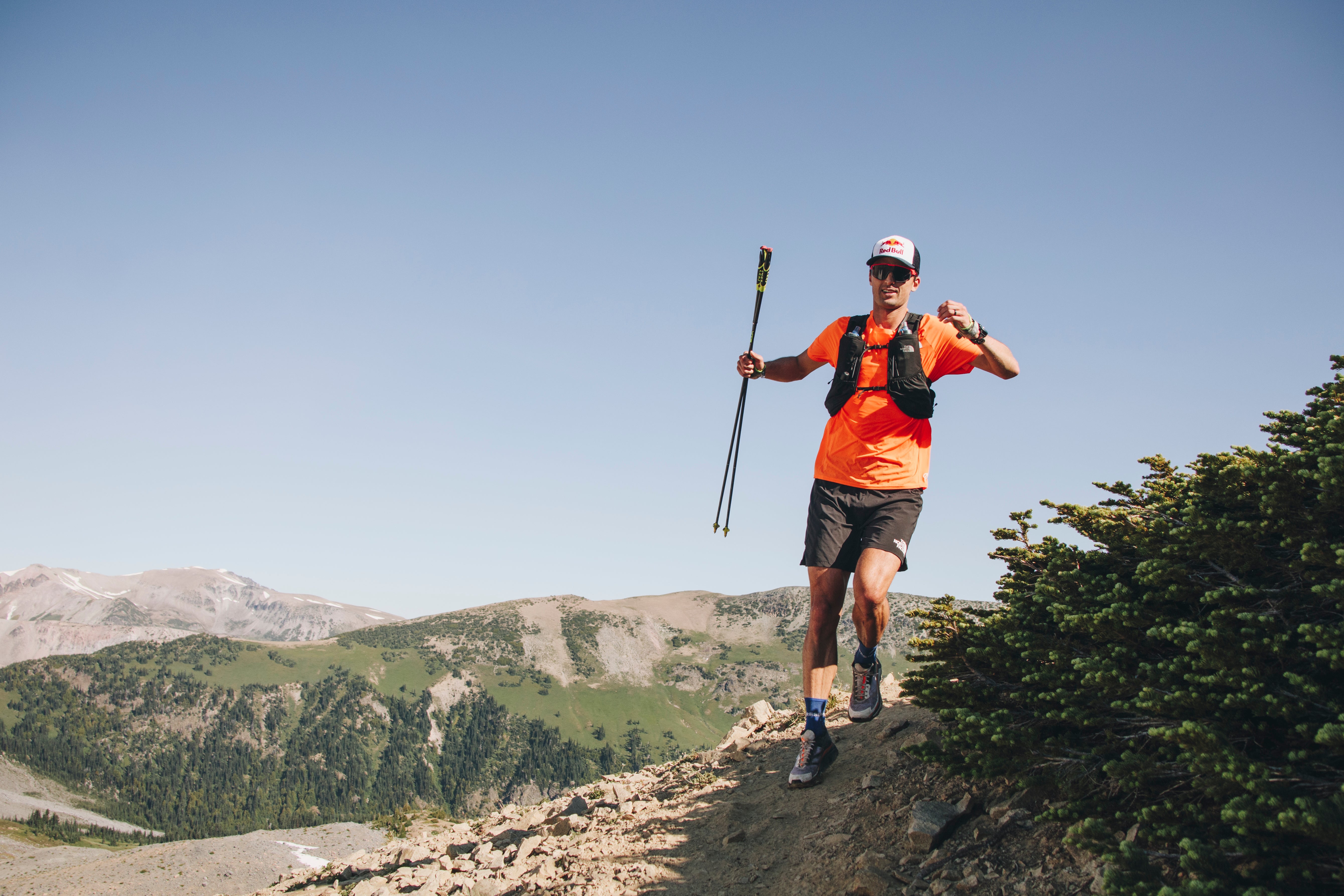COVID is Causing a Boom in Fastest Known Times

'Ethan Newberry/Red Bull'
Courtney Dauwalter was in trouble. It was August 10, and the 35-year-old ultrarunner had just stumbled into Twin Lakes, Colorado. She was nearly two-thirds of the way through an attempt to set a new fastest known time on the Colorado Trail, and she was still on pace to beat the men’s record by more than a day. But she was also wheezing heavily, and in the era of COVID, her team was concerned. It didn’t take long for them to drag her to the local emergency room, where doctors hospitalized her with acute bronchitis. This time around, her dream was over.
As a competitor, Dauwalter is famous for her tenacity. In 2018, she won the Western States Endurance Run, finishing in 17 hours and 27 minutes, the second fastest time in the course’s history. With the 2020 race season canceled, she’s one of many athletes that have taken their prowess to the trail for a less conventional challenge.
Often abbreviated as FKTs, fastest known times are the world records of the hiking community. They range from popular routes like the Colorado Trail and the Long Trail to obscure link-ups potentially being hiked for the first time. According to FastestKnownTime.com, new routes must be “notable and distinct enough so that others will be interested in repeating it. Routes may be of any distance or time duration (although anything less than 5mi long or less than 500 feet of climbing would have to be special).” Runners or hikers who want their feat recognized need to abide by a set of norms, including tracking their progress via a GPS device and announcing their intentions before setting off.
While interest in FKTs has been on the rise for many years, this year’s events kicked it into overdrive. According to Buzz Burrell, one of the co-founders of FastestKnownTime.com, new route submissions for this season are substantially higher than in any year on record.
“About 2,100 [new FKTs] have been added so far this year, against 5,196 total. About 1,230 have been added just since June 1,” Burrell says. “Year over year, we’re up 3.5 times.”
At least in part, that boom seems to be motivated by runners looking for a socially-distanced alternative to traditional races, which can involve thousands of participants, volunteers, and spectators. Among them is Dylan Bowman, who recently took to the Wonderland Trail when his plans to compete in the Hardrock 100 fell through. He says he had the idea in the back of his mind for years.
“I’ve wanted to do the Wonderland Trail for more than a decade at this point. I contemplated going for it in the past but it always conflicted with my previous schedule. I always had other things going on competitively,” he said. “With Hardrock cancelled and my wife and I relocating to the Northwest, that was another motivating factor. I wanted to explore my backyard more.“
Circling Mt. Rainier, the Wonderland Trail is 93 miles in length and features about 24,000 feet of elevation gain; the previous record-holder, Ryan Ghelfi, finished it in 18 hours and 27 minutes. Bowman, a 34-year-old Red Bull-sponsored athlete who notched a podium finish in the Leadville 100 in 2010, scouted out the trail prior to setting off for his record attempt. The prep paid off: He shaved more than an hour off of the previous mark, crossing the finish in 16 hours and 58 minutes. [Editor’s note: Another runner, Kaytlyn Gerbin, has since broken the women’s FKT, finishing in 18:41.]
Bowman’s first FKT likely won’t be his last. Now, he says, he’s thinking about bigger targets.
“I don’t envision myself doing the Wonderland again any time soon but I absolutely have interest in doing other FKTs,” Bowman said. “I’ve never done any multi-day stuff and that’s something that intrigues me.”
Burrell, for his part, is skeptical of the idea that races will return to normal any time soon. While a few trail races, like Colorado’s Grand Traverse, say they plan to go forward, many others won’t be back until at least next year.
“COVID-19 is here to stay, certainly through 2020,” Burrell said. “But even after a vaccine is developed, which are usually 50% effective, do you want to show up at a race with 50,000 of your closest friends?”
Outside of COVID, Burrell points to a growing interest in nature and the opportunity to engage larger skill sets as reasons behind the boom in FKTs. His advice to new aspirants: Don’t lose sight of why you’re out there.
“Learn and grow,” he says. “It’s not a race.”